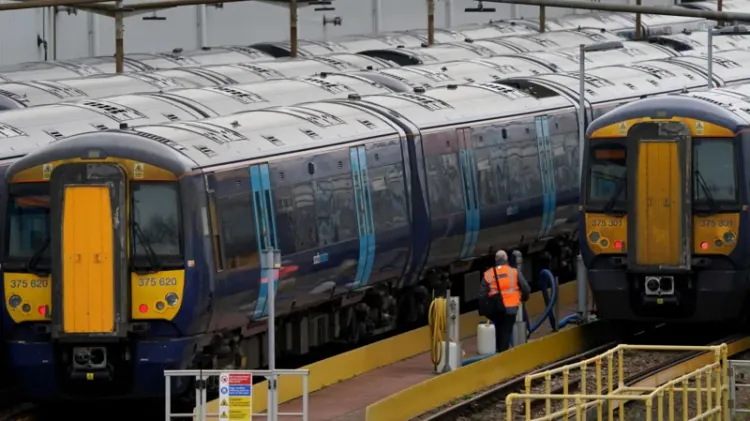Rail Strike Impact: Major Train Cancellations in Kent
The latest on Kent's train cancellations due to rail strikes, driver pay disputes, and the impact on passengers

- Introduction
- The Strike's Core Issues
- Current Train Operations in Kent
- The Union's Stance
- RDG's Position and Offers
- Impact on Passengers and Future Prospects
- FAQs
- Further Reading
Introduction
In a significant disruption to daily life, the majority of trains in Kent have been canceled due to ongoing strikes by drivers in the Aslef union. This article delves into the heart of the pay and conditions dispute between the union and the Rail Delivery Group (RDG), the reduced train services currently in operation, and the broader impact on passengers and future negotiations.
The Strike's Core Issues
The root of the rail strike lies in a longstanding dispute over pay and working conditions. Drivers, represented by the Aslef union, have called for better pay after a freeze in salary increments amidst rising living costs. The RDG's proposal, a 4% pay increase over two years based on a four-day work week, has been rejected by the union, escalating tensions and leading to widespread train cancellations.
Current Train Operations in Kent
With the strike in full swing, Southeastern train services have been dramatically reduced to just four routes in Kent. These include connections between Ashford and St Pancras, Orpington and Charing Cross, and Dartford and Charing Cross via Sidcup or Grove Park, significantly limiting travel options for thousands of passengers.
The Union's Stance
Mick Whelan, the Aslef general secretary, emphasizes the union's call for a fair pay rise and improved conditions. Highlighting the union's vision for a more efficient, affordable, and safe rail system, Whelan criticizes the privatization of the rail industry and its impact on workers' rights and service quality.
RDG's Position and Offers
The RDG, while open to negotiations, insists on the need for realistic discussions. Their proposals aim to adapt to changing passenger patterns, including the removal of Sunday as an optional workday, to meet the increasing demand for weekend travel. Despite the ongoing dispute, they have extended a pay offer aimed at increasing drivers' average salaries significantly.
Impact on Passengers and Future Prospects
The strike has not only disrupted daily commutes but has also raised broader questions about the future of rail travel in Kent and beyond. As both sides stand firm, the possibility of further delays and cancellations looms, with passengers caught in the crossfire of this industrial action.
FAQs
- Why are the majority of trains in Kent canceled?
- What is the dispute between Aslef and the RDG about?
- How are current train services operating in Kent?
- What are the demands of the Aslef union?
- What solutions does the RDG propose?
Further Reading
For those interested in delving deeper into the complexities of rail strikes, their implications for public transport, and the ongoing debates surrounding rail privatization and worker rights, we recommend visiting Kiksee Magazine for comprehensive analysis and commentary.
In conclusion, the rail strike in Kent is more than a temporary inconvenience; it's a reflection of the broader challenges facing the rail industry in the UK. As negotiations continue, the resolution to this dispute will have significant implications for the future of rail travel, worker rights, and public transportation policy.
What's Your Reaction?






















